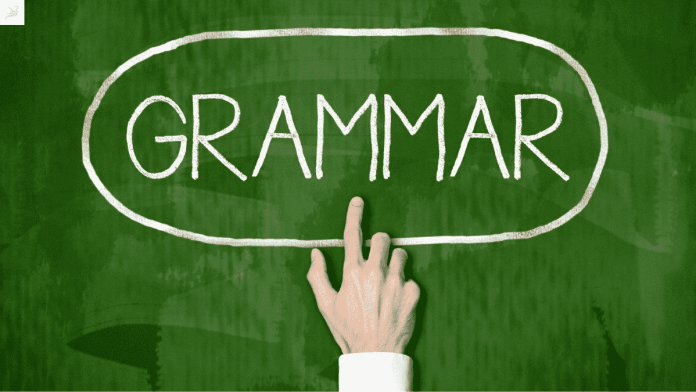Hey beautiful souls! We are back with another blog on Grammatical Errors but this time with some difference so that the monotony doesn’t bore you. Some words can be very confusing and people generally do nothing about it.
We tend to ignore such words because why bother googling it when you can just skip the whole dialogue of the movie or the line of a book. But this is not good.
Remember! If you want to improve any language you know or are learning, never skip the difficult or confusing parts. Instead, research thoroughly over it and understand the reason of confusion and trust me once you do that it would be a no more ‘let’s just skip it’ thing.
Here are some very common words and phrases that confuse people.
Table of Contents
Anyways Vs Anyway
To ‘many’ of you wondering that how can the two words differ when the meaning of both are same. Yes! There is a difference between the two.
Both the words mean ‘Regardless’. But the usage is different
- Anyway: It is used in writing and speeches.
- Anyways: It is used as an Informal form of anyway. (You can use it when you are talking informally but beware of those Grammar fanatics)
Just delete the word ‘anyways’ from your head because if you keep using it informally then you might as well end up using it during Formal interactions and you know how wrong grammar can leave a very bad impression.
Blonde vs. Blond
We can bet you people have never given these words a thought even after seeing the two words with different spellings but with same usage i.e. a person with pale yellow or golden hair. We will just clarify the difference between the two words just for the sake of your knowledge.
- Blond – used when we are talking about a MALE
- Blonde – used when we are talking about a FEMALE
Maybe vs. May be
Want to see what difference can a space between words, in English, make? Well here is an example of how a space can change the meaning of the whole sentence.
- Maybe : It is an adverb which means ‘possibly’
E.g. Maybe I am never coming back.
It is sometimes also used as a noun which means ‘a mere possibility’
E.g. I want the work completed by tomorrow. No ifs and maybes.
- May be: It is a verb phrase which means ‘probability of something occurring or that something might already exist’.
E.g. They may be stuck in the Traffic Jam.
‘Maybe’ can never be used as a verb phrase and ‘May be’ can never be used as an adverb or noun. Remember when there is space ‘Maybe’ is divided into two verbs ‘may’ and ‘be’. ‘Maybe’ can never be used as a verb in a sentence.
Embarrassed vs. Ashamed
No! They are not same and you cannot use one in place of another. These two words have a slight difference in their meanings. Even people with great grammar skills could make this mistake.
- Embarrassed: It is about what other people think of you or will think of you maybe because you did something socially unacceptable or you had a personal thing revealed in front of other people.
E.g. You embarrassed me at the family dinner by telling them that I don’t have my wallet.
- Ashamed: It is about what you feel about yourself after committing a moral error. It is often related to feeling guilty.
E.g. I was ashamed when I had to lie to my parents about my grades.
That is why you can never be EMBARRASSED when you are alone
Purposely vs. Purposefully
Words like these have always been a problem for me and hence I used to ignore them whenever I write an essay or read a book but it’s better to learn how to use them.
- Purposely: this word is used to describe an action done ‘deliberately’ or ‘intentionally’ – something done on purpose.
E.g. I purposely put the Christmas gifts in the cupboard so that my sister finds them on opening it.
- Purposefully: This word is used to describe an action ‘full of purpose’ or ‘something done with determination’. The opposite of this word would be somewhere close to ‘do something negligently or carelessly’.
E.g. The nurse purposefully measured out 1 ml of syrup for the sick child.
If you ever get confused try to put ‘intentionally’ in the place. If it makes perfect sense then ‘purposely’ will be used and if it sounds weird ‘purposefully’ is used.
Lay vs. Lie
Let us break it down part by part. The most common meaning of both the words are-
- Lay: to place (something or someone) down in a flat position.
E.g. I was told to lay down the plates on the table.
- Lie: To be in a flat position on a surface
E.g. The doctor told the patient to lie down on the recliner.
In simple words “You LAY something down” and “You LIE down”. That is tricky enough but it gets even worse when we use the words in different tenses.
So what if you want to say the same sentences above in some other tenses
You would say-
| I laid down all the plates on the table. | The doctor asks the patient to lie down. |
| I am laying the plates on the table. | The doctor told the patient to keep laying down. |
| I have laid the plates on the table. | The doctor has lain down all the patient. |
You see what I am talking about? Don’t you want to bang your head against the wall? But sometimes you have to practise and learning doesn’t always do the trick.
In the boat vs. On the boat
This is very simple to understand yet people get confused because sometimes we read “…she was on the boat” and sometimes “….she was in the boat”. So which statement is true?
The answer is both of them can be true according to the circumstances
- We use ‘in the boat’ when it’s a small boat – like a row boat. You are sitting on your seat and not walking around.
- We use ‘on the boat’ when you can walk around – like if it is a cruise ship.
That is it for today’s blog. We really hope that the blog was helpful for you people and you learned something new. Remember no matter how many rules you learn you have to keep revising them otherwise it is of no use. Click here for the next blog in this series!
You learn and you forget. So keep revising the old rules…and soon you will not need them. Ciao!
Thank You.




